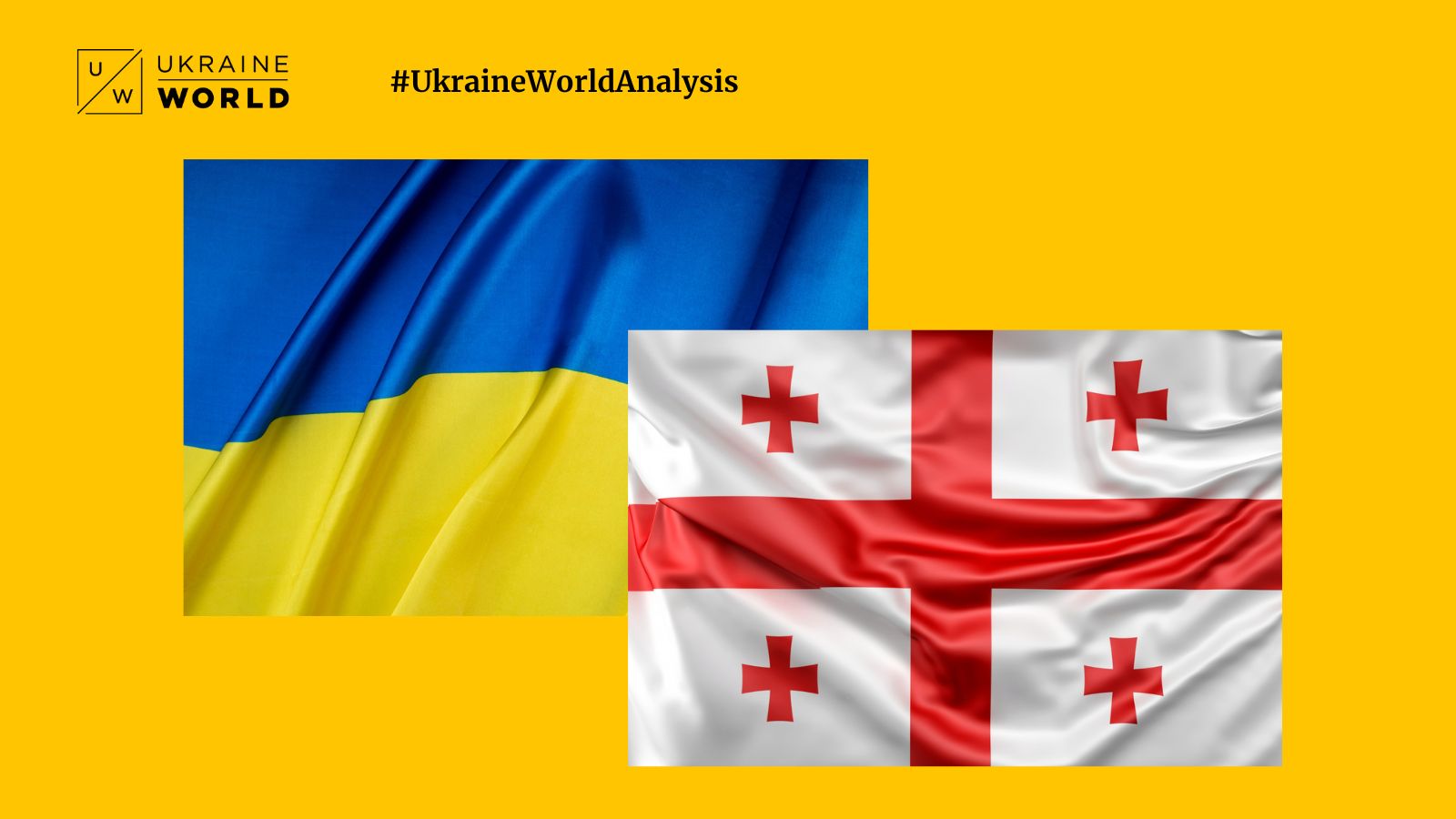UkraineWorld spoke to Bakur Kvashilava, Dean of the School of Law and Politics and Professor of International Relations and Comparative Politics.
Key points - in our brief, #UkraineWorldAnalysis:
1. On the parallels between Georgian Abkhazia and South Ossetia in 2008 and Ukrainian Donbas and Crimea in 2014
- There are similarities and differences between the conflicts. The similarities are that Russia was the main driving force for the separatist aspirations of these regions. Russia was instrumental in making these entities successful on the ground and expelling legitimate state authorities from the territories in question.
- There was also similarity in how Russia's actions in both Georgia and in Ukraine drew rather muted reactions in the West and the Free World. In both cases, Russia was invited to the negotiation table more as a negotiator and peacemaker than as a party to the conflicts, which is what it in actual fact was.
- The differences lie in the histories of these conflicts -- Georgia had troubles in South Ossetia and Abkhazia starting during the breakup of the USSR, while for Ukraine, even though there were political squabbles in Donbas and Crimea, they never escalated into armed violence. In addition, while Russian forces were open in their attack upon Georgia in 2008, Russia attempted to deny the involvement of its troops in 2014 (though they eventually reversed their earlier lies about not being involved in Crimea).
2. On why Russia's attack on Georgia did not lead to the consolidation of democratic forces against its imperial appetites
- Most importantly, Russia won the information war during the first few days of the attack on Georgia, depicting the Georgian government as intent on resolving the conflict in South Ossetia by force. They also claimed totally bogus atrocities committed by Georgian troops. Even though it was Russian troops who were found to have committed atrocities by international courts later on, the allegations sowed doubts in Georgia's Western allies.
- Moreover, many in the West thought that Russia's aggression against Georgia was a one-off event, and many in Europe were eager to put the issue of Georgian integration into NATO on the shelf, hoping to ensure a friendlier Russia in a global standoff with China.
3. On the Georgian government's attempts to have its cake and eat it, too in its relations with Europe and Russia
- Russia does not particularly care about anyone's friendship, and will simply take whatever it deems necessary. On the other hand, if Georgia's position threatens Russian standing among its immediate neighbors which have maintained a neutral or friendly position on the Russo-Georgian conflict (the Central Asian republics, Armenia, Azerbaijan, and Belarus), then it will have even more reasons to attack. It should not descend, however, into helping Russia in any meaningful way. According to the western diplomats stationed here, Georgia is not doing this at the moment. I find it more troubling that the government is trying to introduce laws at home that will drive us away from our European destiny.
4. On the stark contrast between the people and the government of Georgia
- Recent polls also show that even among supporters of Georgia Dream, a sizeable majority support Ukraine. However, the government has been very skillful in demonstrating to its supporters that while they support Ukraine, Georgia cannot be dragged into the war, which would aid Ukraine very little but could help Russia considerably.
- The Russians often quote a certain Ukrainian official who stated that Georgia must open a second front. Obviously, a second front in Georgia would be very far from the opening of the second front in WWII, where the US and UK sought to relieve the Soviet Union of German pressure. Georgia cannot play such a role, as is obvious to everyone.
- There is also the very unusual matter of former Georgian President Mikheil Saakashvili, who is in prison and is a Ukrainian citizen who at one point served as the Governor of Odesa Oblast. Other Georgian politicians from the Saakashvili Administration have played a significant role in Ukraine, and some continue to do so. Thus, Ukraine has become a symbol of successful resistance against Russians and a true Georgian dream, but which is at the same time aligned with their political opponents. This is a deadly combination for Georgian Dream, and they cannot disentangle Ukraine as a country from Ukraine as a player in Georgia's domestic politics. At the same time, it would be safe to say that 90% of the rank and file in Georgia's government and public sector support Ukraine and our Western destiny, and the government is well aware of this. Hence their dilemma.
DARIA SYNHAIEVSKA, ANALYST AND JOURNALIST AT UKRAINEWORLD
Bakur Kvashilava, Dean of the School of Law and Politics and Professor of International Relations and Comparative Politics
This material was prepared with financial support from the International Renaissance Foundation.

